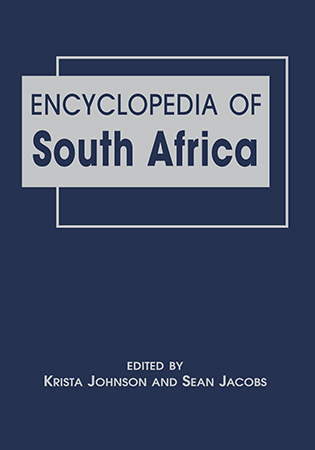This authoritative, comprehensive reference work covers South Africa's history, government and politics, law, society and culture, economy and infrastructure, demography, environment, and more, from the era of human origins to the present.
Nearly 300 alphabetically arranged entries provide information in a concise yet thorough way. In addition, a series of appendixes present a wealth of data, including: a chronology of key events, major racial and apartheid legislation since 1856, heads of state (with party affiliation) since 1910, provinces and major cities, government structures, and current political parties and representation in parliament. Photographs enhance the text.
Members of the encyclopedia's International Advisory Board are R. Hunt Davis, Jr., Sandra Klopper, Shula Marks, Dominique Malaquais, Barney Pityana, Zine Magubane, and Peter Limb.
Krista Johnson is associate professor of African studies at Howard University. Sean Jacobs is assistant professor of international affairs at The New School.
No rights in Southern Africa."Both logical arrangement and thoughtful contributors' content make this volume easy to use and an important resource.... Also, about 23 pages of very thorough index add significant value for any researcher.... Highly recommended."—Jim Agee, American Reference Books Annual
"A unique reference.... It is skillfully edited, melding relevant subject selection with accessible organization to offer a well-rounded treatment of an important topic."—Tom Gilson, Against the Grain
"Contributors present concise and pertinent information needed to understand and study a country that has undergone tremendous changes from its struggles with colonization, apartheid, independence, and postindependence.... Highly recommended."—Choice
"A good, concise reference for undergraduates, or for anyone just beginning research on South Africa."—Frances Restrick, African Studies Library, Boston University
"The Encyclopedia of South Africa offers a well-rounded overview of the country—its history and politics, as well as social and cultural phenomena—in all of its diversity and complexity.... It is a strong contribution to the field."—Marion Frank-Wilson, Herman B Wells Library, Indiana University






